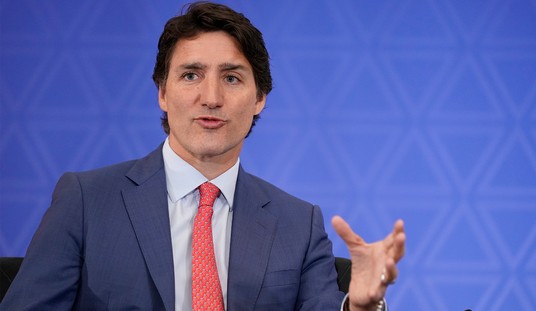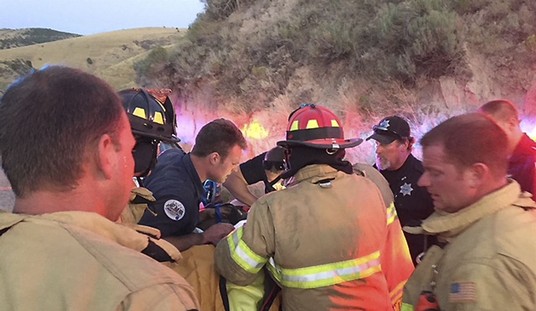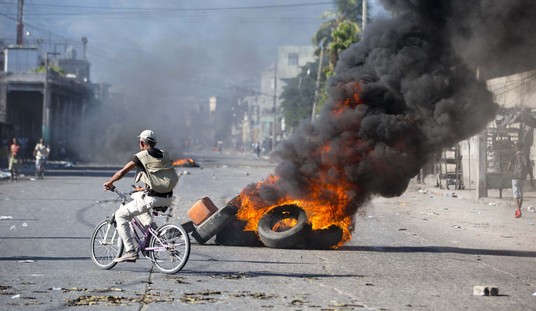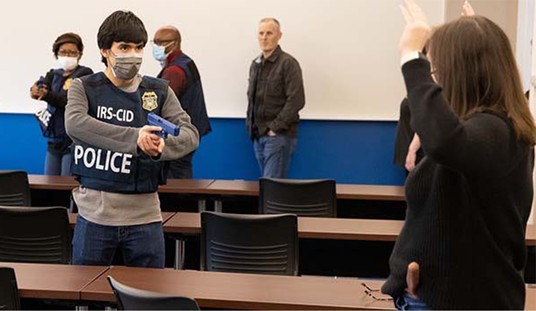Outgoing CNN host Candy Crowley sat down with President Barack Obama for his final interview of the year on Friday in which she probed him over his government’s response to the North Korea-linked cyber-attack on Sony Studios.
Crowley asked if the administration considered the costly and dramatic attack on the livelihoods of American citizens, complete with ultimatums warning of future attacks unless Sony behaved in a manner preferred by the attackers, represented an act of war.
“No, I don’t think it was an act of war,” Obama said. “I think it was an act of cyber-vandalism that was very costly, very expensive. We take it very seriously.”
Well, that’s reassuring. The president went on to lecture Crowley that her network should make every effort to not cave to the demands of cyber-attackers as Sony had when they inevitably become the target of a similar assault.
“CNN has done critical stories about North Korea. What happens if, in fact, there is a breach in CNN’s cyberspace?” Obama insisted. “Are we going to suddenly say, are we not going to report on North Korea?”
It was a similar admonition to the one he gave Sony executives from behind the podium of the James Brady Briefing Room. “If we set a precedent in which a dictator in another country can disrupt through cyber, a company’s distribution chain or its products, and as a consequence we start censoring ourselves, that’s a problem,” Obama said.
He’s right. Sony set a bad precedent, but so did Obama. The president cannot possibly think that an attack like that executed by North Korea (and its allies in the People’s Republic of China) is a matter for law enforcement alone? Actually, maybe he does. Why else would he repeatedly suggest that cyber-attacks on private American interests like these are going to become a feature of American life?
Obama’s government doesn’t seem to agree with this indecisive response to state-sponsored aggression.
Last week, the White House revealed that it would pursue a “proportional” response to the attack; wholly insufficient, but it’s better than nothing. Deterrence is, however, maintained by the plausible threat of disproportionality. The administration might be better served by warning Pyongyang publicly that future attacks on private citizens will, for example, result in a crippling cyber-assault on the nation’s already beleaguered power grid.
But that’s an act of war, you say, and the president has just said that he does not regard this attack as a casus belli. While the president went out of his way to avoid using the word “terrorism,” others have not.
“Senior Democratic Senator Robert Menendez urged Secretary of State John Kerry to consider again designating Pyongyang a state sponsor of terrorism,” AFP reported. “This is an unacceptable act of international censorship that curtails global artistic freedom and, in aggregate, would seem to meet the definitions for acts of terrorism,” Menendez wrote to Kerry.”
When asked by Crowley about again adding North Korea to the terrorism sponsors list after their 2008 removal as part of multilateral nuclear negotiations, Obama appeared open to it. “I’ll wait to review what the findings are,” the president said.
So the president regards this act as a “crime” resulting in “costly” “vandalism,” but he’s nevertheless not opposed to treating it as an act of terrorism and its executor as a terrorist actor? This seems a contradictory policy.
All this ambiguity is quite unnecessary. The Pentagon outlined their strategy for dealing with terrorist acts in 2011, and they recommended embracing a doctrine of disproportionate force. “If you shut down our power grid, maybe we will put a missile down one of your smokestacks,” as one military official euphemistically put it in an interview with The Wall Street Journal.
That’s how deterrence works. What would a “proportional” response to this attack by North Korea be, precisely? What proportional interests exist in North Korea, a country where industrial trucks are fueled by wood gas generators, to attack? A proportionate response to this attack is also one that Pyongyang believes it can absorb. What’s the deterrent value in that?
Moreover, pretending that Pyongyang is entirely responsible for this attack is like imagining Cuba developed fully deliverable thermonuclear weapons all on its own in 1962. Clearly, the gentle pressure we are led to believe that China is applying to its North Korean allies is not working. It might be time for America to change its approach to Pyongyang’s chief sponsor.
The president has again shirked his duties on the way to his 17-day holiday in Hawaii, and in all likelihood it is because he just doesn’t know how to respond. It’s a terrorist attack, but it’s not. We’re considering a response, but it will be “unbelievably small” (John Kerry’s words when the proposed targets were Syrian) and probably will go unnoticed by the offending party. As Obama is wont to do, he called into question the perfectly questionable response of private citizens to a foreign attack, but engaged in no introspection about his government’s approach.
These might have been good issues for Crowley to make note of in her final interview of the year with the president, not to mention her last as a CNN anchor. Unsurprisingly, though, she passed.








Join the conversation as a VIP Member